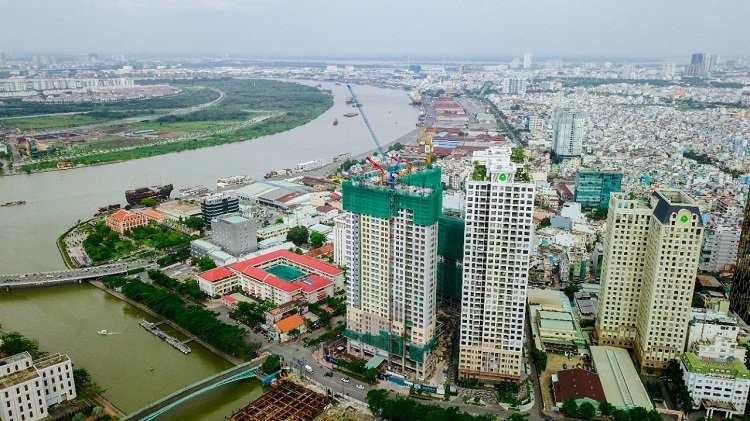
Property slowdown unlikely to become a systemic crisis
Latest
Maybank Vietnam has released a report to assess the impact of a real estate slowdown in Vietnam through an assessment of the size of the real estate sector and its linkages with the broader economy and financial system.
Accordingly, real estate activities accounted for 3.7 per cent of real GDP in 2021. Real estate and its closely related industries, construction and finance, make up 15.6 per cent of real GDP. The aggregated share is nonetheless considerably smaller than China, where real-estate-related activities account for as much as 30 per cent of GDP.
The report indicates that a property market downturn could dampen household consumption through negative wealth effects. Real estate is a popular asset class. A 2022 survey indicated that nearly 80 per cent of respondents owned at least one property, mainly comprising married people aged 40 or above with income from VND20 million ($851.97) per month. Most respondents with monthly salaries of more than $2,960 owned two to three properties.
 |
| Property slowdown unlikely to become a systemic crisis |
It is said that a slowdown in property development and sales activity may dampen state revenue. Land and property-related revenue comprised 14.6 per cent of total fiscal revenue in 2021, from the assignment of land use rights (11.8 per cent of total revenue), rental of land (2.6 per cent), land and housing tax (0.1 per cent) and sales of state-owned houses (0.1 per cent). However, the government is expected to raise taxes on land and housing in 2023 to discourage speculation, which could offset the revenue impact from the slowdown.
The financial system’s exposure to the property sector is moderate. Property accounted for 20.4 per cent of total outstanding bank loans as of April 2022, compared to 26 per cent of the banking system’s total loans in China. The lion's share of property loans is mortgage loans extended to homebuyers.
Loans to real estate businesses represented only 7.3 per cent of total outstanding credit as of April 2022. As of the first quarter of 2022, banks' total balance of investment in corporate bonds represented only 3 per cent of total outstanding loans.
Nonetheless, some developers may be major shareholders or decision-makers in commercial banks, raising concerns about distorted lending practices that bypass regulatory limits.
Maybank expects that tightening oversight of bank loans to developers and homebuyers will help cool speculation and prevent property market overheating. The policy limits the banking system’s property sector exposure and mitigates the risk of financial sector contagion from a real estate market downturn. Reining in housing credit will enable funds to be better distributed to support the growth of other sectors and channel funds to more productive uses that drive long-term economic development.
Meanwhile, the recent tightening of corporate bond issuance rules with Decree 65 will reduce information asymmetry between issuers and investors and better protect investors. This will allow investors to make more informed choices, enhancing the quality of the private bond market.
Developing the corporate bond market will diversify businesses’ sources of capital and reduce reliance on bank credit. The amendments to Decree 65 will alleviate refinancing risks in 2023, although investor confidence will take time to recover. Further intervention may be on the table if refinancing stress persists.





















